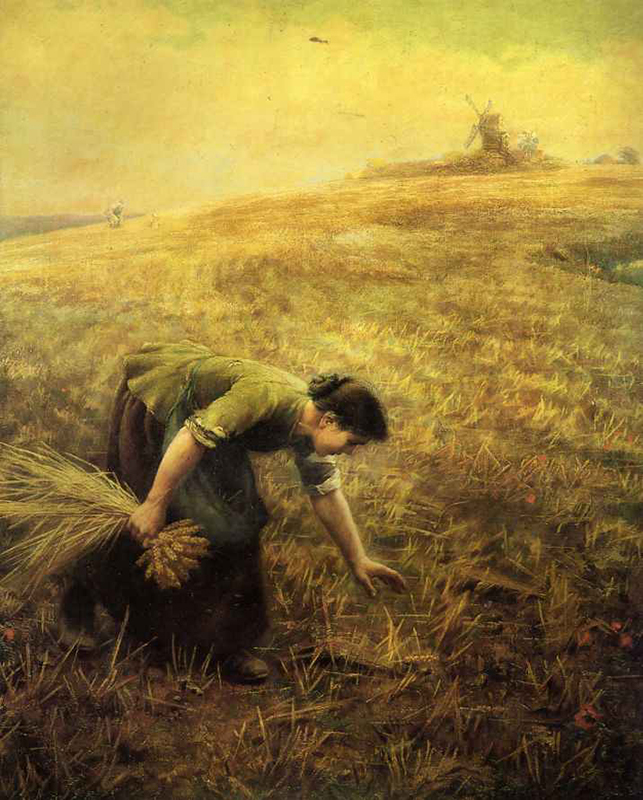
“Gleaning” painting by Arthur Hughes. Image courtesy of Creative Commons
(RNS) So 24 million more Americans will be without health insurance under the Republican Obamacare replacement bill, according to the Congressional Budget Office. Or 26 million, if you prefer the number from the Trump Administration’s Office of Management and Budget.
All right, the White House claims that the latter is just OMB estimating what the CBO would estimate, as if that means nothing. Not that OMB has come up with an estimate of its own.
The point is that after reducing the number of uninsured by 20 million, we are now poised to head back in the opposite direction, big league. So much for Candidate Trump’s promise that Trumpcare would cover more Americans than Obamacare.
At its core, the Affordable Care Act taxes the wealthy to enable lots of non-wealthy to acquire health insurance. What “repeal and replace” would do is untax the wealthy, and leave the rest of us with higher premiums to underwrite the emergency room visits of the growing number of uninsured.
In short, the Republican plan is to help the rich and stick it to the middle class. Is there any reason for religious Americans to support it?
Of course there is. The Calvinist stream in American public life, which arises from the Puritan settlement of New England, saw economic hardship as punishment for sinfulness. What English common law called “sturdy beggars” — aka welfare queens and other freeloaders — deserve nothing but to be put to work.
The rich, by contrast, are the favored of God.
In other words, GOP rhetoric about “government take-over” and “medical choice” is rooted in the belief those who cannot or will not pay for their own insurance deserve the consequences.
Of course, those of us who do not partake of the Puritan tradition are entitled to take a different position. Under the theocratic ordinances of ancient Israel, for example, farmers were obliged to care for the poor by leaving grapes on the vine and the margins of their fields unharvested.
That comes in Leviticus 19. The injunctions about those homosexual acts that evangelicals love to cite come in Leviticus 20.
What a difference a chapter makes.





